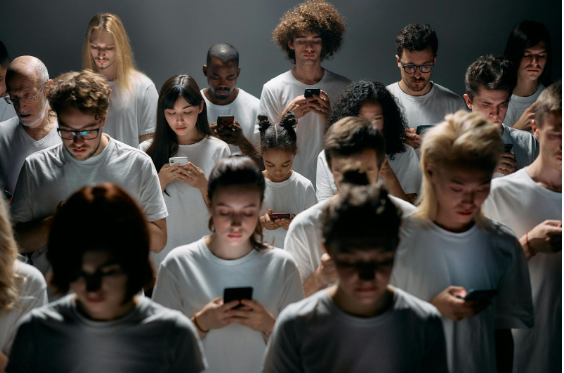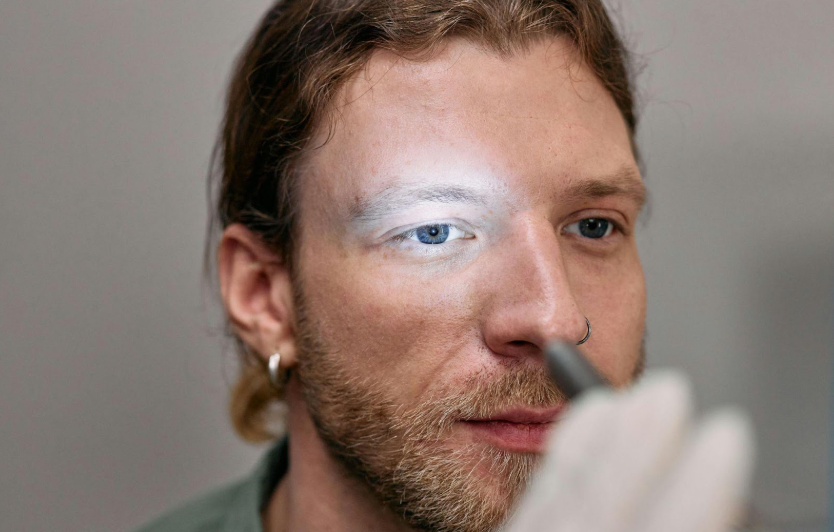What Happens to Our Eyes as We Age?
Our bodies naturally change as we get older, including our eyesight. While some changes are common for everyone, others can pose a significant threat to the health of our eyes and vision.
It’s perfectly normal to experience changes to your vision over time. Focusing on close objects, differentiating between colors like black and blue, and seeing in dim light are all changes that can take place as you get older.
On the other hand, eye diseases like cataracts and glaucoma should not be considered normal and can lead to permanent vision loss. Take steps like getting regular comprehensive eye exams and making healthy lifestyle changes to help detect and prevent them.
To help you prepare for changes to your vision as you age, we’ll look at:
- Normal vision changes as we age
- Causes of vision loss as we age
- Preventing vision loss as you age
They say that change is inevitable. While this is true, preparing for and responding to changes in vision can lead to much better outcomes when things do change. Keep reading to learn what to expect from your vision as you get older and how you can protect your vision for the rest of your life.
Normal Vision Changes as We Age
Changes in vision are to be expected as we get older. Our bodies and physiology are constantly evolving. While these changes may come as a surprise for many people, many of them are common and allow patients and medical professionals alike to know what to expect. It’s important to know what is normal when it comes to changes in our vision, and what is not.
As we age, it’s normal for people to experience:
- Trouble focusing on objects that are up close
- Difficulty telling the difference between colors such as blue and black
- Problems seeing in dim light or adjusting to light changes
The lens in younger people’s eyes is naturally flexible, allowing them to see things up close more clearly. But as we get older, it can be more difficult to focus on objects that are up close , such as reading small print. This is due to the fact that our lenses become less flexible as we age, a condition known as presbyopia.
Another problem older people normally experience is difficulty telling the difference between colors . When you’re younger, your lenses are clear and allow you to distinguish between differences in colors such as black and blue. Unfortunately, our lenses can begin to discolor as we age, making it difficult to distinguish between certain colors and shades.
You may also experience problems seeing in dim light, adjusting to light changes, and driving at night . One part of aging’s effect on our vision is needing more light to see clearly than you did when you were younger. Having more light around your home and work can help you see more clearly and improve your ability to see things up close more easily.
Causes of Vision Loss as We Age
Issues such as trouble seeing up close objects, distinguishing between shades or colors, and poor vision in low light are to be expected as we get older. However, there are other age-related eye problems that are not part of the natural aging process.
These eye problems include:
- Cataracts
- Glaucoma
- Age-related macular degeneration
- Diabetic retinopathy
These eye diseases can ultimately lead to vision loss and should be checked for and treated as soon as possible.
Cataracts
When the lens of the eye becomes cloudy, it’s known as a cataract . This clouding effect usually results in vision that has become more blurry or dim over time. It’s often described as a filminess or glare over the eye that becomes even more noticeable under bright light. Sometimes this clouding doesn’t result in vision loss. However, it’s still considered a cataract.
Glaucoma
Glaucoma is a disease that damages the optic nerve as we grow older. The optic nerve is extremely important for our vision since it’s what connects the eyeball and the brain. Glaucoma is usually caused by increased pressure in the eye. While this is the most common cause of glaucoma, it’s not always the case.
Age-Related Macular Degeneration
One of the most common threats to our vision as we get older is age-related macular degeneration , also known as AMD. This eye disease affects the retina, which is a layer of nerve cells that lines the back wall of your eye. AMD affects the retina and can lead to loss of central vision, especially for people over the age of 45.
Diabetic Retinopathy
Diabetic retinopathy is the leading cause of blindness in the US and cases are only increasing. When left untreated, high blood sugar can damage the blood vessels in the eye and result in loss of vision. Like AMD, diabetic retinopathy can do significant damage to the retina. Fortunately, early detection and treatment can help mitigate its effects.
Preventing Vision Loss as You Age
People tend to lose their vision to eye diseases gradually over time. This is why taking preventative measures early combined with comprehensive eye exams is so important. By getting regular comprehensive eye exams and pursuing a healthy lifestyle, you’ll be in the best position to catch problems early as well as prevent them from developing to begin with.
Comprehensive Eye Exams
Comprehensive eye exams are essential for catching vision loss as soon as possible. Regular exams give your ophthalmologist a chance to catch problems early as well as develop a treatment plan. It’s recommended that you start getting comprehensive eye exams once you turn 40 to help catch any issues before they become major problems for your vision.
Get Plenty of Exercise
According to the American Academy of Ophthalmology , regular exercise is extremely important for eye health. Regular exercise promotes:
- Blood circulation
- Oxygen intake
- Healthy weight
There are plenty of ways to get exercise without over-exerting yourself. It can be as simple as walking, stretching, or taking up a healthy hobby such as yoga or tai chi.
Make Sure You’re Getting Enough Sleep
Sleep has tons of benefits for our bodies and minds. When it comes to our vision, sleep helps keep our eyes lubricated and prevents problems such as dry eye. Sleep also removes irritants such as dust, smoke, and allergens that may have built up in our eyes throughout the day. Sleep is incredibly important to your overall health, so make sure that you’re getting enough.
Protect Yourself From Harmful UV Rays
Too much sun can increase your risk of developing cataracts and AMD. That’s why you should invest in a quality pair of UV blocking sunglasses. UV rays are dangerous year-round, so make sure to wear your sunglasses whenever it seems necessary.
Are you concerned about your vision as you get older? Contact us today to schedule an appointment and set yourself up for years of healthy vision.
Baptist Eye Surgeons is an ophthalmological practice in Knoxville, TN, and Morristown, TN. Visit our website to meet our doctors and learn more about our specialties, or give us a call at 865-579-3920 for more information.


MORRISTOWN
SEVIERVILLE
TENNESSEE VALLEY - LASER CENTER
TENNESSEE VALLEY - EYE CENTER



